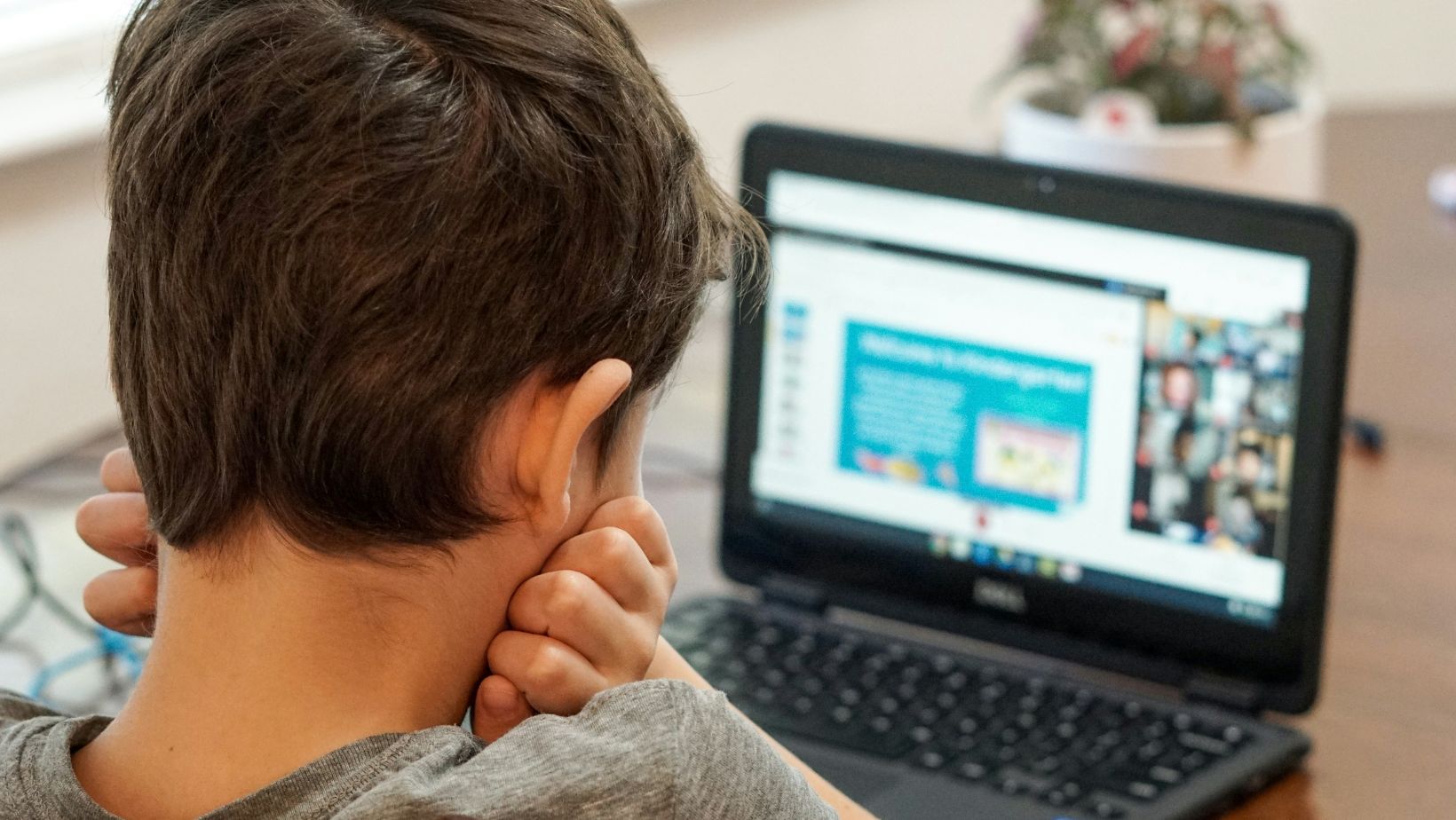
Kids are spending increasingly longer online. We’ve truly created the ‘iPad generation.’ All About The Vision released data showing kids are spending the following hours on screen time:
- Ages 2-4: Around 2.5 hours daily
- Ages 5-8: Around 3.5 hours daily
- Ages 8-12: Around 5 hours daily
- Teens: Around 7.5 hours daily
And, yes, the iPad and technology are a tantrum savior, but the result is that more kids are becoming vulnerable to online threats. And those screen time hours are big numbers, creating a big window of vulnerability.
As moms, we should be hyper-aware of our kids’ activity online. But, what can we do to keep our children safe in an increasingly digital world?
Keeping Your Children Safe Online in 2025
Keeping your children safe online in 2025 is more essential than ever. With every year that passes, the risks seem to increase. And there are plenty of options for you that aren’t simply being the overbearing, overprotective, nagging parent.
You can find free data broker removal services to remove your child’s personal information from the internet. You can set parental controls. You can limit screen time. Even if you are labelled the nagging parent, protecting your child’s online privacy and safety is essential in 2025.
Do you know what your child is doing online? Or do you know where their data is? Laws like COPPA might put protections in place, but there’s more parents can do to protect their kids’ online privacy. In our opinion, understanding the Children’s Online Privacy Protection Act (COPPA) and a few advisories about online safety for children is a great place to start.
A Guide to the Children’s Online Privacy Protection Act
COPPA is a U.S. federal law designed to protect the online privacy of children under the age of 13. The law imposes specific requirements and guidelines that operators of websites or online services directed to children under the age of 13 must follow.
The law, first released in 2000, was amended in 2013 to ‘modify the definitions of operator, personal information, and website or online service directed to children’ and to ‘update the requirements set forth in the notice, parental consent, confidentiality and security, and safe harbor provisions, and adds a new provision addressing data retention and deletion.’

It’s a 44-page PDF, so we’ll summarize the main requirements of the act:
- Websites must include a detailed privacy policy outlining the information collected from users.
- Websites must acquire verifiable parental consent before they collect personal information of a child under the age of 13.
- Websites must disclose the specific information they collect.
- Websites must give the right to withdraw consent and allow personal user information to be deleted.
- Websites must limit the collection of data when a child under the age of 13 participates in online games and contests.
- Websites must follow the requirement to protect the confidentiality, security, and integrity of personal information they collect online from children.
The Dangers for Kids Online
The dangers for kids online are ever-increasing. From predators to data fraud, the issue is that kids, especially under the age of 13, don’t truly understand the risks. Enough.org released some eye-opening data highlighting the issues and dangers for kids online:
- 72.09% of tweens and 85% of teens experienced or witnessed bullying online.
- 75.35% of tweens and 93.31% of teens engaged in conversations about drugs or alcohol.
- 80.82% of tweens and 94.5% of teens expressed or experienced violent subject matter or thoughts.
Follow the link we provided to read more statistics and about the dangers for kids online.
That’s why parents must be the advocates for their children’s online privacy. As much as they might think it’s an invasion, especially if they’re towards the moodswing-filled tweens and teens, you should know everything your child is doing online.

















